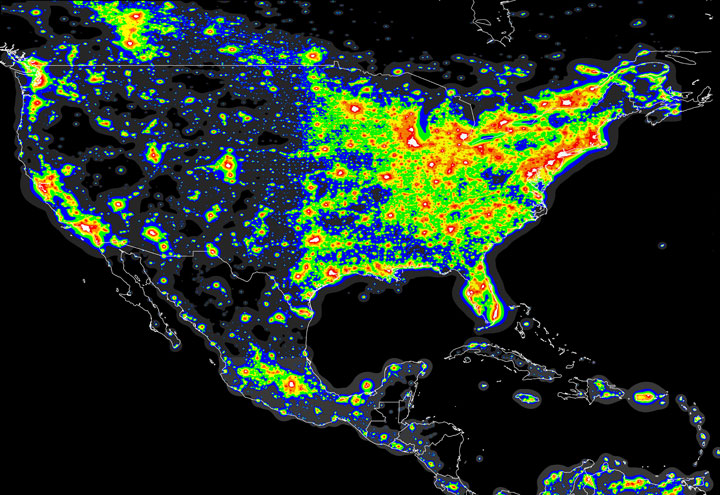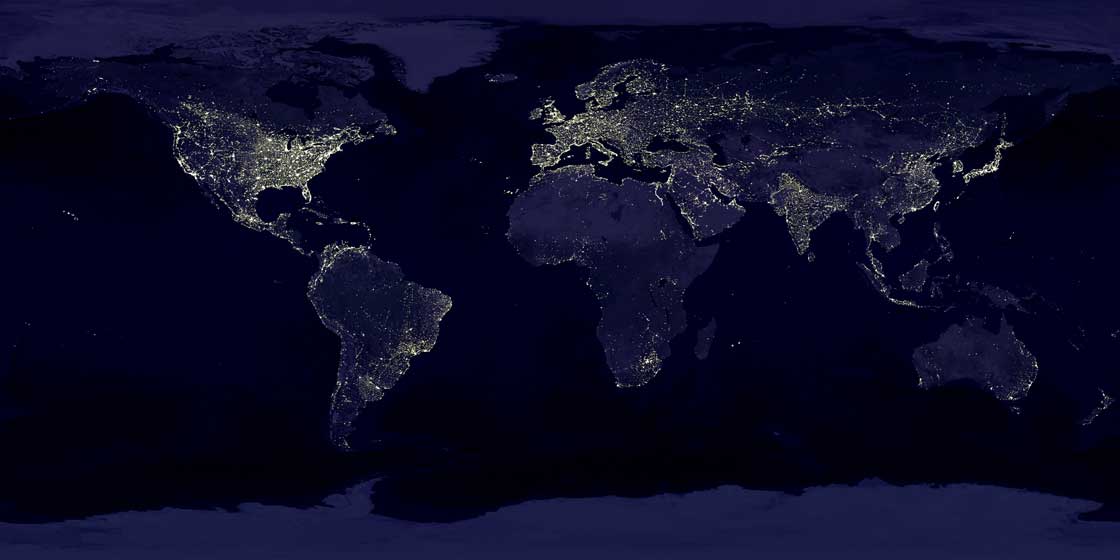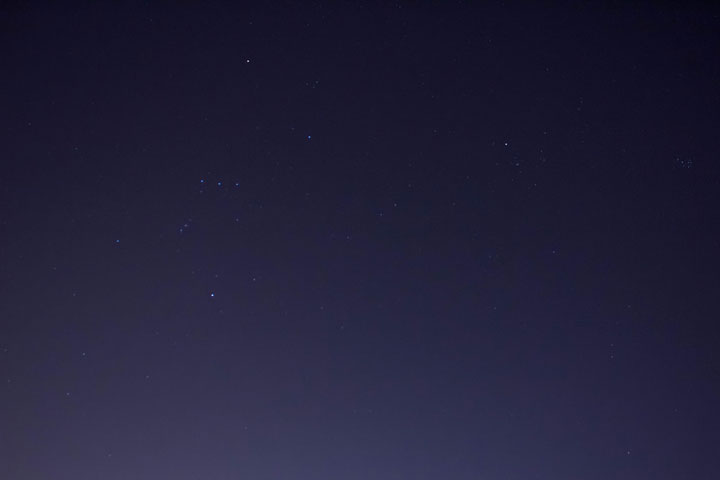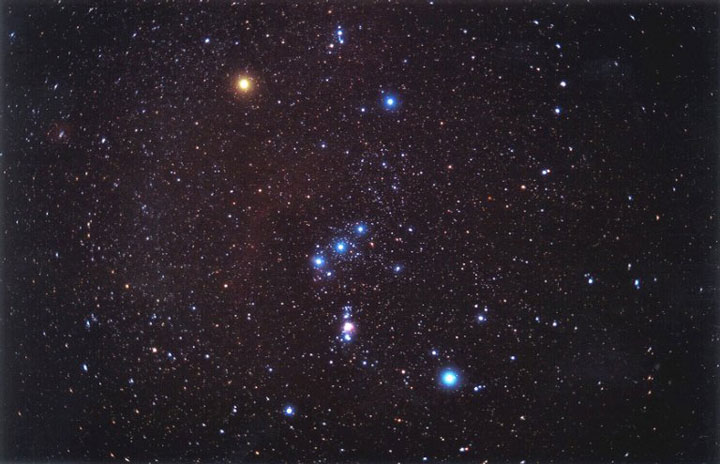TORONTO – Though many are celebrating Earth Week, there’s another environmental cause to mark: International Dark-Sky Week.

If you’re like most Canadians — most people around the globe, actually — you live in or near an urban centre and can only see a few stars in the night sky. But there are billions of stars there: we just can’t see them, and that’s due to light pollution.
READ MORE: Saving the night–Light pollution a serious concern for human health and wildlife
International Dark Sky Week, which runs from April 20-26, is part of the International Dark-Sky Association (IDA), which was initially founded by astronomers. However, since its creation in 1988, the association has evolved to encompass human health, the effects on wildlife and the preservation of the dark sky as part of its mandate.
International Dark Sky Week was started in 2003 by an American high school student, Jennifer Barlow. Since then, it has become an important part of the IDA’s Global Astronomy Month.
“The overlaying message for Dark Sky Week is to make people aware that there’s another side to the night, than the streetlight, or to urban skyglow,” Robert Dick, Manager of Light Pollution Abatement Program for the Royal Astronomical Society of Canada told Global News.
“There’s a benefit to a dark sky. There’s value in that.”
The IDA has close to 5,000 members, and several chapters around the world. The most recent chapter is in Toronto.

Get breaking National news
“I like that…they’ve got a diversity of people working on the issue,” Scott Kardel, Managing Director of the IDA told Global News. “If you have people that are involved in city planning and people who are interested in the environment and people who are interested in energy conservation, then you get really, a far better approach to things.”
“This isn’t just an astronomy thing,” Kardel said.
Studies have shown that too much light can disrupt our circadian rhythm, a process that helps regulate our cycles between day and night. Other studies have shown a link between light pollution an the incidence of breast cancer.
Then there’s the effect on wildlife: light pollution has been known to disrupt migratory birds as well as turtles and other animals.
This year, International Dark Sky Week — which aims to take place during a time when the moon isn’t in the night sky — happened to fall on Earth Week, which Kardel said was an added benefit since the messages for both events are closely linked.
For the first time this year, the event had different themes for each of the seven days: Why Pollution Matters; Ill Health; Environmental Harms; Energy Waste; Lighting, Safety, and Crime; Stars are our Heritage; and Take Action.
Reducing light pollution
Dick said that the strength of lighting that most streetlights produce is unnecessary. Lighting is measured in “lux” and he said that most street lighting far surpasses what is necessary.
Comparing Orion in a light-polluted sky versus a dark-sky location
“You can read a phone book at one lux. Streets where I am are illuminated to 30 lux — 300 times more,” he said.
But across Canada, many communities are installing LED lights, which reduces the overall cost of lighting, but also helps to reduce light pollution. LEDs last longer and have less blue in them than traditional lights bulbs, which is better since blue is the most harmful colour of light. As well, the new LED lights are able to be aimed downward, where the light belongs, rather than upwards which causes the skyglow.
Some communities include Surrey, B.C., Edmonton, Alta.,Mississauga, Ont., and the province of Nova Scotia.
There are also communities, such as Richmond Hill, Ont. which have lighting bylaws. These bylaws require full cut-off lighting which directs the light toward its intended use and not upwards.
As well, more dark-sky preserves are popping up not only in Canada, but around the world.
Ultimately, the IDA’s message isn’t about turning out all the lights, but using them more efficiently.
“We should be far more careful and thoughtful about how we use light at night,” Kardel said. “We’re not saying that we want to plunge everyone into darkness and chaos.”







Comments